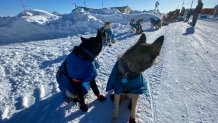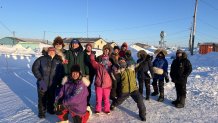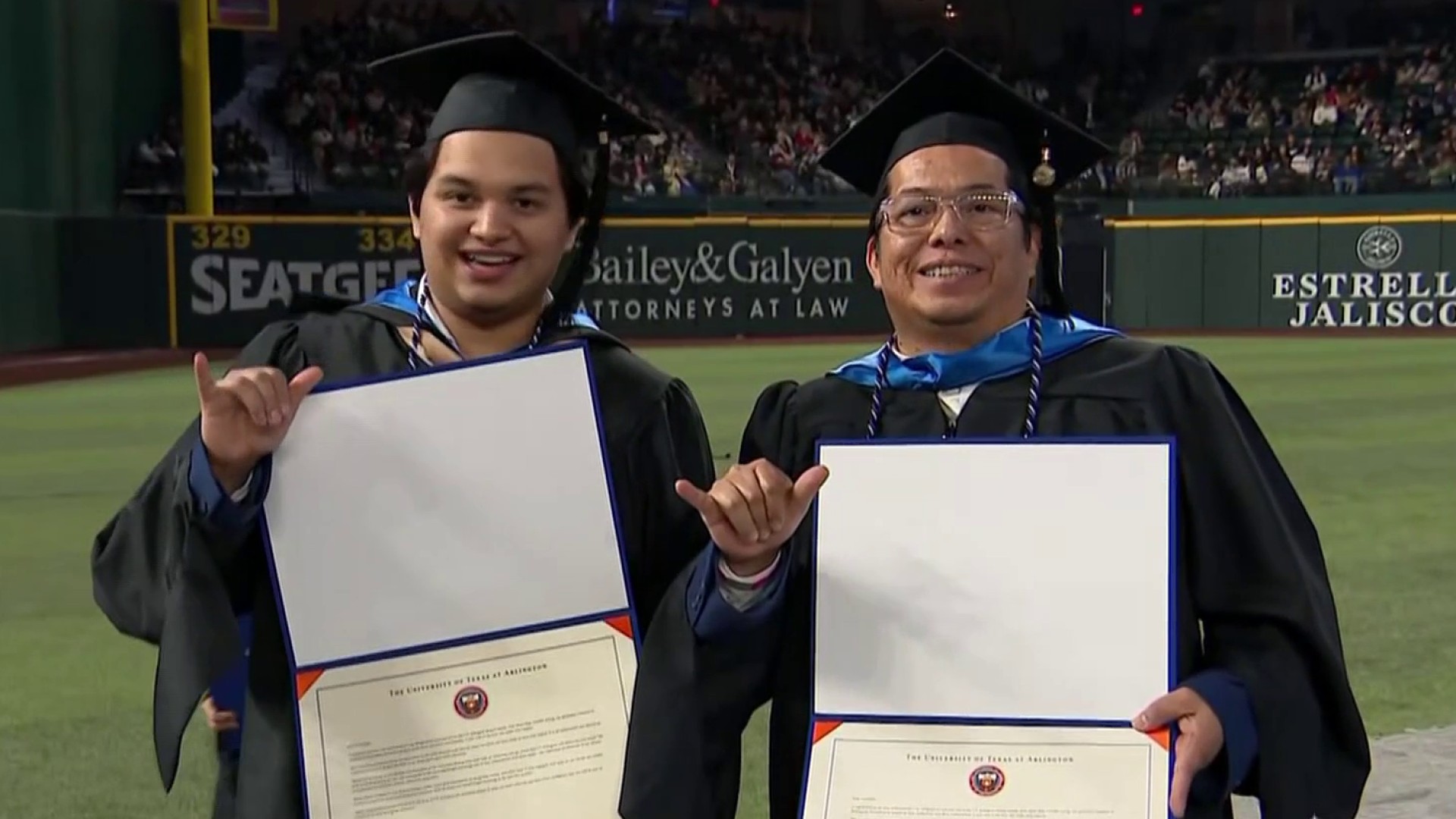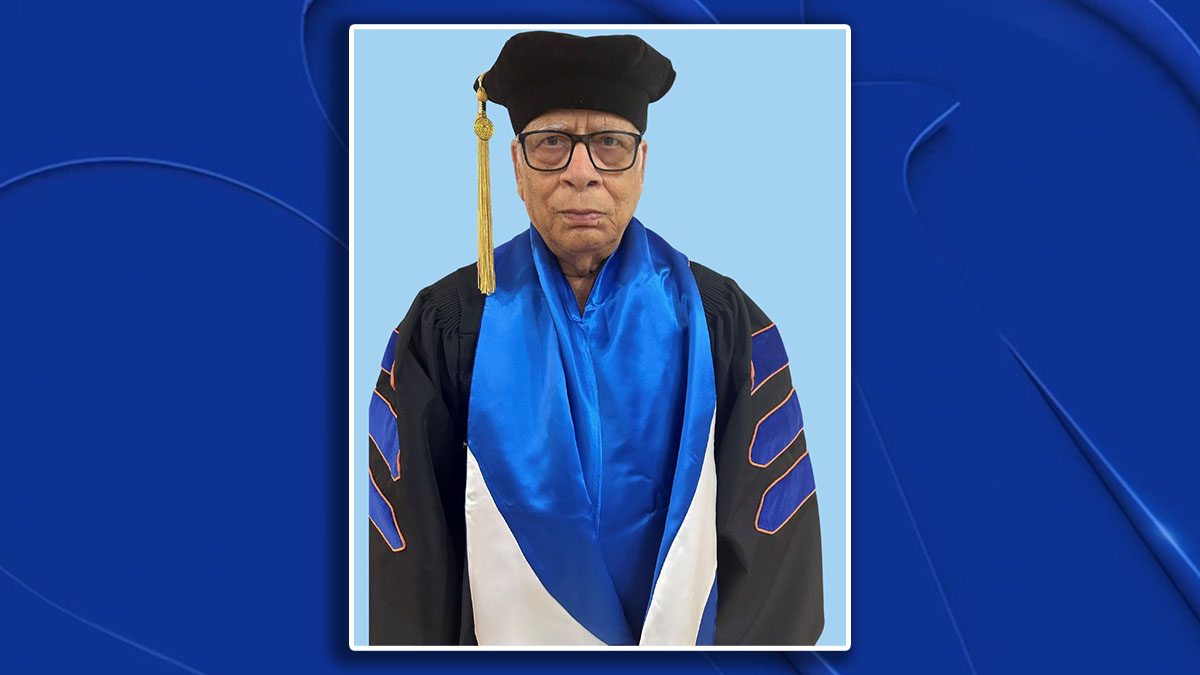A Fort Worth veterinarian is coming back home from the experience of a lifetime – working the famous Iditarod sled dog race in Alaska.
Dr. Russell Miller shared photos and stories from his work as a canine physician on the 1,000-mile Alaskan trail this month as teams traveled across the state.
The Iditarod Trail Sled Dog Race – one of Alaska’s most iconic winter events, now in its 52nd year – kicked off earlier this month in Anchorage. Dr. Miller said he submitted an application after a recommendation from a colleague and was picked to be in the select group.
“Witnessing the dogs' sheer joy and eagerness to race is truly inspiring, as they were so eager to run to the next checkpoint,” he told NBC 5. “As trail veterinarians, our mission is to ensure each athlete is in top condition to continue their journey. All volunteers participating in the race, including mushers, trail crew, communications staff, veterinarians, and others, are deeply committed to the welfare of the animals, each contributing uniquely to their support and care.”
Get top local stories in DFW delivered to you every morning. >Sign up for NBC DFW's News Headlines newsletter.
Dr. Miller – who is the founder and medical director of VO Vets Animal Hospital in Fort Worth and is a published author on animal health – was one of 50 volunteer veterinarians, who all made sure the Iditarod race dogs stayed healthy at each checkpoint.

The volunteer vets monitored the dogs' heart rate and rhythm, hydration, appetite and of course, those paws to keep them running strong.
Wake Up to Something Good
Every morning, NBC 5 Today is dedicated to delivering you positive local stories of people doing good, giving back and making a real change in our community.
“Our group consisted of 50 volunteer veterinarians, with 45 of us serving directly on the trail, conducting health assessments at each checkpoint. This role requires you to be adaptable to the unknown and have a deep commitment to the well-being of our canine competitors,” said Dr. Miller.
Dr. Miller said temperatures often fell below zero, which is terrible weather for Texans but perfect weather for the canine athletes including Siberian Huskies, Alaskan Malamutes, and Samoyeds.
“Participating in the Iditarod is a breathtaking journey, and coming from the warmth of Texas, I knew I had to be well-prepared for the Alaskan cold,” he said. “Despite the frigid conditions, [we were] focusing on the health of our canine athletes and ensuring they were free from diseases so they could continue the race. The warmth and support from the local community in the native village were incredible, making for a memorable experience and forging lasting connections.”

The race ended on March 17. Dr. Miller has plans to open up a second VO Vets animal hospital in Trophy Club as soon as he gets back to the warmer spring weather in North Texas.
“The challenges and learnings from the Iditarod have been instrumental in preparing me for this venture,” he said. “Similar to the unpredictable nature of the race, opening a clinic comes with its hurdles. However, the ability to adapt and prepare for unforeseen circumstances, a skill refined during my Iditarod involvement, is invaluable. This unique backdrop not only enriches my expertise in veterinary medicine but also strengthens my resolve to provide exceptional care for our pet patients and their families.”



